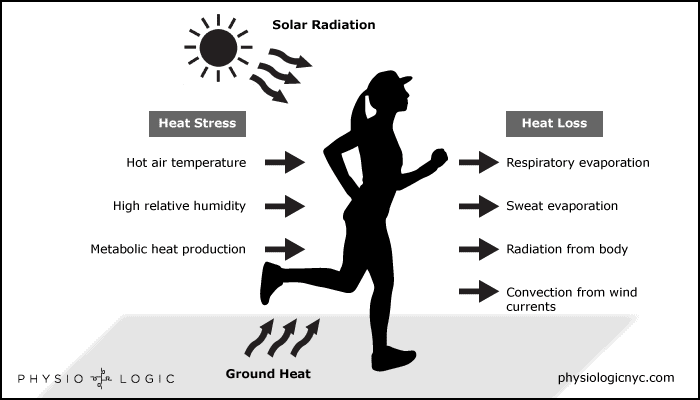Guide and best practices to replenish electrolytes and fluids after a workout.
By: Michelle Miller, Clinical Nutritionist & Rachel Naar, Registered Dietitian
Water constitutes most of our body weight and provides the medium by which other nutrients function. The thirst mechanism is most effective at rest, so if you’re hitting the gym or going for a run you may not even feel thirsty until later when you’re dehydrated.
Thirst is NOT an indicator of adequate hydration. It is also important to note that weight loss after exercise is not indicative of fat loss, as the water loss is a result of fluid shifts.
Under normal conditions, fluid balance is easily regulated.
Exercise challenges fluid balances by:
- Increasing body temperature
- Increasing fluid loss via sweating

Your Body’s Response to Dehydration
- Increases in:
- GI Distress (think nausea/vomiting/diarrhea)
- Heart Rate
- Core temperature at which sweating begins
- Decreases in:
- Cardiac Output
- Performance
- Endurance Capacity
Recommendations
- If you’re just starting out, workout first in a cool environment!
- Monitor hydration.
- Ensure extra salt intake early on in heat exposure (or if muscle cramping occurs).
- Acclimate to the heat: schedule daily heat exposure for at least a half-hour for two to three weeks to adapt to the environment.
Heat Advisory
To minimize the potential for thermal injury, ACSM experts recommend:
- Water losses due to sweating during exercise be replaced at a rate close to or equal to the sweating rate
- Individuals who are not acclimated to hot temperatures should refrain from intense workouts in the heat.
Pre-Hydration Recommendations
- Ensure adequate hydration before activity
- Slowly drink 5-10 ml/kg 2-4 hours before
- Additional 3-5 ml/kg if urine is dark or limited
- Include sodium in foods or beverage to stimulate thirst and retain fluids
Fluid Replacement During Exercise
- Goal: to prevent dehydration and electrolyte imbalances
- Requirements vary with sweat rate, exercise duration, environment, clothing
- Restrict losses to 1-2% of body weight
- 0.4-0.8 L/hr
- Ex. If you are running for 2 hours, consume between 0.4-0.8L/hr, which would be 0.8L-1.6L in total for 2 hours.
Fluid Replacement After Exercise
- Goal: to replace fluid and electrolyte deficits
- May take 4-24 hours
- Regular consumption of food and fluids adequate to recover over 24 hours
- Sodium must be included in diet
- Rapid recovery requires 1.5 L/kg body weight lost)
- Ex. If you lose 1 kg of body weight (2.2 lbs), you will recover with 1.5 L of fluid.
- Extra volume compensates for increased urine production
- Sports drinks helpful if sodium not obtained through food
- Ex. If you lose 1 kg of body weight (2.2 lbs), you will recover with 1.5 L of fluid.
Rapid Replenishment
- Combine water or sports drinks with high sodium foods
- Soup or broth
- Tomato or V8 juice
- Pickles
What’s the deal with Sports Drinks?
Sports drinks:
- Provide fuel (carbohydrate) and electrolytes
- Carbohydrate enhances fluid and sodium absorption in small intestine
- Benefits of added amino acids, vitamins, etc. are questionable
- Formulated to provide quick, effective rehydration along with an energy source
- Added sodium helps to retains fluid
To Sports Drink or to Water? That is the question.
Consider:
- Type and duration of event
- >60 minutes and/or high intensity (consider including sports beverage)
- Climate conditions
- Heat and humidity, altitude (consider including sports beverage)
- Pre-nutritional status
- Inadequate Carbohydrates, low sodium diet ( consider including sports beverage)
How about coconut water?
Claim: Most natural “like putting a straw in a coconut” (Vitacoco/ Harmless Harvest) and high in potassium
Considerations:
- SODIUM is more critical than Potassium in hydration
- little Potassium is lost in sweat
- Commercial forms can be highly processed!
Our experts from Physiologic NYC will guide you to the ideal treatments for your needs.
More questions about staying hydrated? Schedule an appointment with the Clinical Nutrition Department by filling out the form below or calling now.